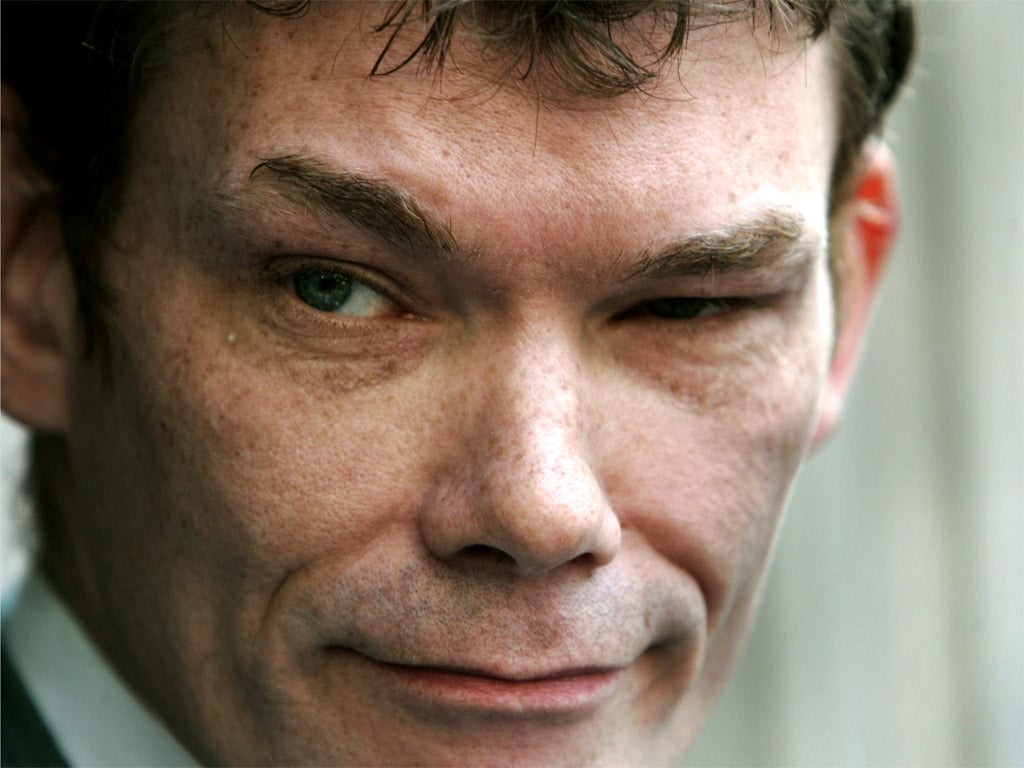Computer hacker Gary McKinnon will face no further action says CPS
Mr McKinnon, 46, admitted he accessed US government computers but says he was looking for evidence of UFOs

Computer hacker, Gary McKinnon, will face no further criminal proceedings over the hacking of US government computers the Director of Public Prosecutions, Keir Starmer QC, said today.
Mr McKinnon, 46, admitted he accessed the government computers but says he was looking for evidence of UFOs.
He could have faced up to 60 years in prison if he was convicted in the US.
In October McKinnon sensationally won his fight against extradition to the United States, as the Home Secretary, Theresa May, ruled that the former computer hacker was not well enough to stand trial overseas.
He was permitted to remain in the UK after medical reports showed he would be very likely to kill himself if extradited.
Mr McKinnon, who had been fighting extradition since 2002, suffers from Asperger's Syndrome.
Both Prime Minister David Cameron, who held talks on the case with President Barack Obama, and his deputy, Nick Clegg, previously condemned plans to send him to the US.
In an October statement, a spokeswoman for the US Department of Justice said: "The United States is disappointed by the UK Home Secretary's decision not to extradite Gary McKinnon, particularly given the past decisions of the UK courts and prior home secretaries that he should face trial in the United States.
"We note that the Home Secretary has described this case as exceptional and thus this decision does not set a precedent for future cases.
"The Home Secretary has acknowledged that Mr McKinnon is accused of serious crimes and that the United Kingdom's Director of Public Prosecutions will now consider whether MrMcKinnon has a case to answer in a UK court."
The decision that the appropriate place for Mr McKinnon to be tried was the US was affirmed in 2009 and subsequently challenged in the High Court, and that challenge failed, Mr Starmer said.
Mr Starmer said: "None of the reasons for the original decision in 2002 that the appropriate place for Mr McKinnon to be tried was the United States have altered.
"So far as the evidence is concerned, the position in 2012 is the same as it was in 2002.
"Most of the witnesses are in the US, as is nearly all the physical evidence and the bulk of the unused material, some of which is sensitive.
"Accordingly, in November this year, the CPS and the police met senior officials from the US Department of Justice to discuss the possibility of bringing the US witnesses to England and Wales for trial and of transferring all the US material to this jurisdiction to be considered.
"The potential difficulties in bringing a case in England and Wales now should not be underestimated, not least the passage of time, the logistics of transferring sensitive evidence prepared for a court in the US to London for trial, the participation of US government witnesses in the trial and the need fully to comply with the duties of disclosure imposed on the CPS. The prospects of a conviction against Mr McKinnon which reflects the full extent of his alleged criminality are not high.
"After consulting with the Metropolitan Police Service and the CPS and having carefully considered matters, on 4 December this year, US authorities indicated to us that they would be willing to co-operate with a prosecution in England and Wales if that would serve the interest of justice.
"However, they do not consider that making all the US witnesses available for trial in London and transferring all of the US material to this jurisdiction would be in the interests of justice given our representations and the reasons for the decision that the US was the appropriate forum."
He added: "Against this background, the joint CPS/police panel recommended to the assistant commissioner of the Metropolitan Police that he should not commence a new criminal investigation into Mr McKinnon. The assistant commissioner of the Metropolitan Police has accepted that advice."
